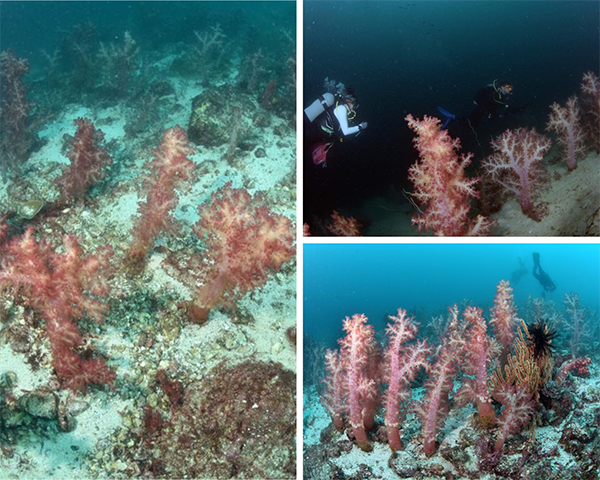
Newnham’s Dr Emily Mitchell, NERC Independent Research Fellow and Assistant Professor at the Department of Zoology, featured this month on BBC 1’s Earth programme. On the show, she explains how complex deep-sea organisms from the Ediacaran period, 600 million years ago, lived and behaved. You can view her interview around 54 minutes into the programme here.
Emily, a High Table member at Newnham and Curator of Invertebrates at the Department of Zoology and Museum of Zoology, is busy with her team over the summer examining the ecology of soft-corals in Japan and Fiji, in order to better understand the early evolution of their ancient ancestors. Her photos above show the team in action and the soft-coral they are currently investigating.
“Our research focuses on the eco-evolutionary dynamics of the very first animals to have ever existed, found during the Ediacaran time period, 600 million years ago,” she explains. “It is not known exactly what these first animals were, but were likely something similar to corals or sponges.
“Superficially they look a lot like soft-corals, so this summer my group and I are doing fieldwork in Japan and Fiji. We are collecting underwater data using videos, then using these videos to reconstruct 3D digital models (links) of these soft-coral communities.
“Because these soft-corals can’t move, their position on the sea-floor encapsulates their entire life history: how they reproduced and how they interacted with each other and their environment. As such, by analysing the spatial patterns of these soft-corals, we can reconstruct these crucial eco-evolutionary processes. These soft-coral data will fill in the knowledge gaps we have in our fossil data, and so provide new insights into the origins and early evolution of animals.”
You can view Emily’s models here.


